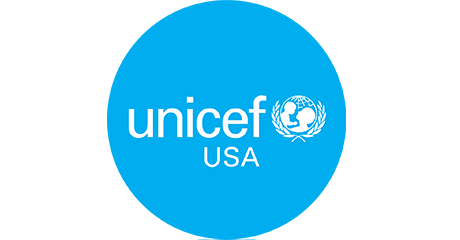NEW YORK (July 13, 2022) – Nearly three quarters of young people aged 15 to 24 in 92 countries with available data are off-track to acquire the skills needed for employment, according to a new report published today by the Education Commission and UNICEF ahead of World Youth Skills Day.
Recovering learning: Are children and youth on track in skills development? features analyses on skills development in early childhood, and among children of primary school age and youth. The data highlight low levels of skills among children and young people across all age groups, with young people in low-income countries the least likely to have the skills required to thrive, particularly in future employment opportunities, decent work, and entrepreneurship.
“An inspired, skilled generation of children and young people is critical for prosperity, progression, and the success of societies and economies. Yet, the majority of children and young people across the world have been failed by their education systems, leaving them uneducated, uninspired, and unskilled — the perfect storm for unproductivity,” said UNICEF Director of Education Robert Jenkins. “Investment in cost-effective, proven solutions to fast-track learning and skills development for today’s generation and future generations is urgently needed to address this crisis.”
With high rates of out-of-school young people and low attainment of secondary-level skills, countries worldwide are facing a skills crisis, with the majority of youth unprepared to take part in today’s workforce, the report notes.
Deep disparities across countries and among those from the poorest communities are increasing inequalities. In at least 1 in 3 low-income countries with available data, more than 85 percent of young people are off-track in the secondary-level, digital, and job-specific skills attainment, the report notes.
“To give young people the best chance to succeed and recover learning losses due to the pandemic, we need to support them holistically. But we can’t recover what we don’t measure. We need to know where children and youth are in building the range of skills they need and monitor their progress. That’s why the Education Commission, UNICEF, and partners have been working to address critical data gaps, including the launch of the World Skills Clock to help track progress on and raise awareness around youth skills attainment around the world so we can target urgent action to prepare this generation to thrive in the future,” said Education Commission Executive Director Liesbet Steer.
Data from 77 countries show that less than three-quarters of children aged between 3 and 5 years old are developmentally on track in at least three out of the four domains of literacy-numeracy, physical, social-emotional, and learning. At approximately 10 years old, the majority of children in low- and middle-income countries are unable to read and understand a simple text. These foundational skills are the building blocks for further learning and skills development, the report notes.
Basic literacy and numeracy; transferable skills including life skills and socioemotional skills; digital skills, which allow individuals to use and understand technology; job-specific skills, which support the transition into the workforce; and entrepreneurial skills are essential for children to thrive. These skills are also critical for the development of societies and economies.
UNICEF and the Education Commission are urging governments to reach every child with quality education and break down the barriers that put them at risk of dropping out; assess children’s learning levels and provide tailored catch-up classes to bring them up to speed; prioritize foundational skills to build a strong base for lifelong learning; and support psychosocial health and well-being by providing holistic support. The report outlines the need for more extensive data on the skills gap among children and young people across all age groups.
# # # #
About UNICEF
The United Nations Children’s Fund (UNICEF) works in more than 190 countries and territories to pursue a more equitable world for every child. UNICEF has helped save more children’s lives than any other humanitarian organization, by providing health care and immunizations, safe water and sanitation, nutrition, education, emergency relief and more.
UNICEF USA advances the global mission of UNICEF by rallying the American public to support the world’s most vulnerable children. Together, we are working toward a world that upholds the rights of all children and helps every child thrive. For more information, visit www.unicefusa.org.
For more information please contact:
Mackenzie Dougherty, UNICEF USA, 212.922.2551, [email protected]
